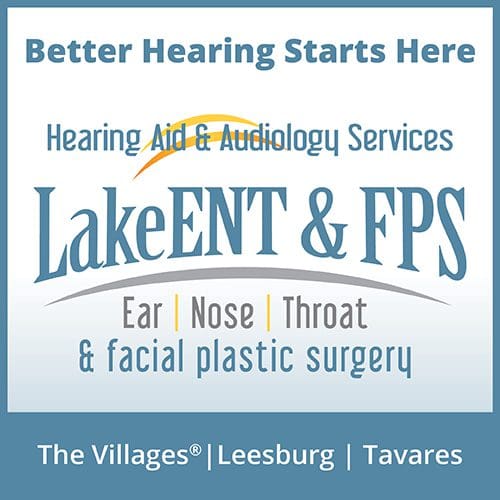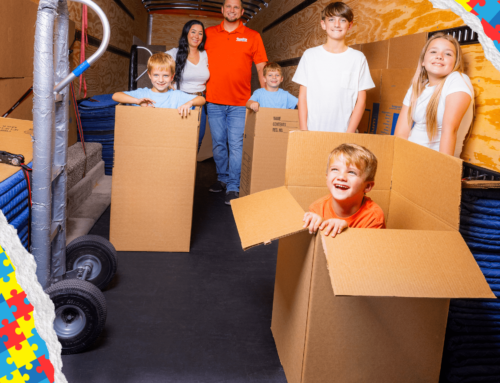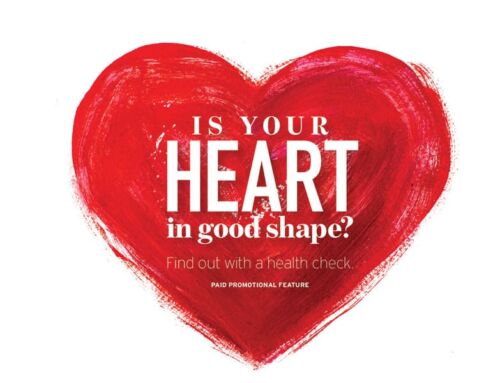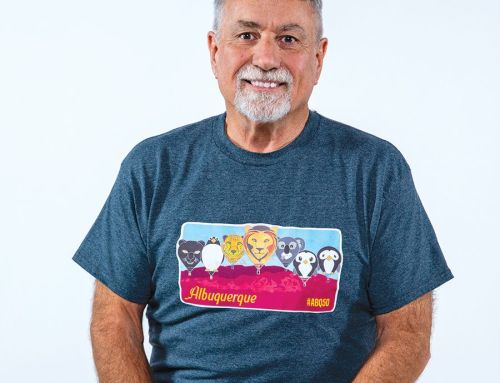By Akers Editorial
It’s all about the children—The Children of the Forest
“There’s this 13-year-old girl whose family took off with her because she got pregnant,” Pastor David Houck said. “Nobody knows who the father is but rumor has it, it’s her brother. So they took off to avoid the authorities. In this neighborhood we’ve had 11-year-olds who’ve given birth—11-year-olds.”
Several years ago, Villager JoAn Suttle heard similar stories from Pastor David about at-risk children living in the Ocala National Forest. She knew she had to get involved.
“The pastor talked about his nonprofit, The Help Agency,” JoAn explained. “It provides a variety of assistance programs geared to help break the chain of poverty that exists in the forest. He told us about the mentoring centers that were helping improve the children’s grades and getting them into high school and later, college.”
As JoAn and others like her have observed, when Pastor David speaks, people listen. He’s an imposing figure of a man. Broad shouldered and standing more than six feet tall, his kind face sports a beard sprinkled with grey, and he has a booming voice that quickly demands attention. However, his compassion-filled eyes grab you and pull you in, eyes that have seen it all. These eyes have witnessed more atrocities and misfortunes in a week than many people see in a lifetime.
The good pastor is married and lives in the Ocala National Forest in a modest doublewide trailer next door to Camp Sozo (a children’s summer camp that was his brainchild). He has 10 children of his own, six of them adopted, some might say rescued, from less-than-desirable homes in the forest. His youngest is 18, and all have graduated from college or still in college, an amazing accomplishment for a family whose income averages around $25,000 a year.
After hearing the pastor speak for the first time, JoAn volunteered to help. “He told us he had been praying for a long time that he could come down here and speak to groups in The Villages,” JoAn explained. She and her husband, Don, vowed to make that happen and soon Sozo Kids Club at The Villages was created.
“We figured we could hold four informational sessions each year and invite Pastor David to speak,” the Tennessee transplant said. “He just asked if we could let people know about his work and what he was doing.”
“I grew up in a squatter’s house in the [Ocala National]) Forest. We were really poor and didn’t do welfare. If we didn’t hunt it, fish it, catch it, or grow it, we didn’t eat it. I swore to God I’d never live here—yeah, I know what these kids are going through.”
—Pastor David Houck, CEO/President of The Help Agency, Turning Point Mentoring Centers, and Camp Sozo
The club has 600 names on its mailing list and recently added an advisory committee. “People involved with Sozo Kids are really passionate about it,” JoAn continued. “One man discovered Pastor David needed a bush hog to clear brush from Sozo Camp land and donated money to buy one. Another couple raised money for a washer and dryer.”
JoAn said amazing things happened when Pastor David began giving tours in the forest. On a particularly hot day after riding in a van with no air conditioning, one of the tour members offered to help raise money for a better van.
“The tours really open people’s eyes,” JoAn said. “He doesn’t take us where it’s really bad but you’ll see homes that don’t have electricity or running water.”
Recently, Pastor David conducted a tour for JoAn and several other interested parties. “The biggest problem I have when speaking in The Villages is the misconceptions,” Pastor David explained as he carefully eyed the one-lane dirt road.
Without warning he quickly changed subjects, yelling to his guests, “How are your backs—they good?” Then his sturdy, but well-broken-in van picked up speed, plowing through several deep ruts causing at least one water bottle to fly through the air. Once past the threat of getting stuck, he slowed the van down and quickly maneuvered around several sharp turns, barely missing trees that hugged the side of the sandy road, like a lonely spinster in the arms of her first dance partner.
“There’s a misconception that everyone living in the forest lives in a tree or in the woods” he said, calmly continuing his story. “That’s not always true. For instance, there are old mobile home retirement communities with paved roads that are now neighborhoods for minimum-wage families.”
He went on to say another misconception is that the people living in the forest won’t work, and everyone is on welfare, living off the government. Again, he said that’s just not true.
“Do you know how far you are out here?” he asked of his charges in the back seat. “Jobs are at least 25 miles from where we are right now. See that truck? If that truck stops working tomorrow, that guy stops working tomorrow. He may be an able-bodied man, but if he can’t afford to get the truck fixed, he isn’t going to work. He can’t pay his rent and his family can’t eat.”
The Ocala National Forest, established in 1908, is the oldest national forest east of the Mississippi and covers 673 sq. miles
There are good, hard-working people living in the forest, but there are also a lot of problems—big problems. “Kids around here are told they’ll probably never make it beyond eighth grade,” Pastor David said. “They’ll have to get a job like everyone else. The parents are lying to them and don’t even know they’re lying. They believe they’re telling the truth because that’s what they heard growing up.”
So begins a never-ending cycle of poverty, reckless decision-making born of desperation, and a deep-seeded sense of hopelessness passed down from one generation to another. Pastor David’s mission is to break that cycle by focusing on the children—the children of the forest—and it begins with their education. “They need to know what’s possible. We take them outside the forest and they see things they’ve never seen before,” Pastor David said.
Other than going to school, some children never ventured outside the forest; but when they see that other world and how they can fit into it…something magical happens. “That’s when they begin to hope and they begin to dream,” he continued. “We have [successful adults who were] mentored here, and they come back to mentor the new kids. We’ve got a kid who works in The Villages as a manager and makes about $60,000 a year—that kid was living in the forest and positive he was going to prison. There’s another one living in Jacksonville who’s making about $300,000 a year. We have teachers, pastors, missionaries, mortgage brokers. After talking to [these adults], the younger kids realize it’s not unattainable after all. They learn it may take education and hard work, but it’s attainable.”
Pastor David’s monologue shifted once more as he pointed to some blown out windows in an abandoned trailer that was used as a meth lab. “This house is one of my all-time favorite meth labs,” he said with a sad smile. “This guy took a pot shot at us a few years ago, but don’t worry, he’s dead.
“That’s what our kids see,” he continued with a quick jerk of his head in the direction of the trailer. “Our kids know how to make meth.”
The pastor knows luring those children into a mentoring center can transform their young lives beyond their wildest dreams. What’s the initial draw to bring children into the center and keep them returning? Something as simple as handing out a free Popsicle® on a hot day. Once there, the young ones discover so much more: access to computers and free Wi-Fi so they can do their homework, air conditioning, pest control, and a clean environment, a working bathroom with running water, volunteer mentors, games, snacks, and a safe place to hang out. Most importantly, they feel an unfamiliar spark of hope ignite, creating a slow burn in their bellies.
On any given day as many as 400 children attend the four mentoring centers scattered throughout the forest. But it costs—a lot. “Electricity, building maintenance, insurance, supplies, food, gas—it all costs money,” he said. “It costs about $250 a month for each child in our program. We provide shoes, backpacks, haircuts, and attendance at Camp Sozo—all for free.”
The Help Agency renovates houses, find people jobs, and through the mentoring centers, helps get the kids from this forest through high school and later, college. There’s also a food bank that feeds 7,000 people a month.
The agency runs a volunteer and student-based restaurant called, The Filling Station. Some of Pastor David’s kids work there and learn about the restaurant business and all-important work ethics. A “suspended meal” can be purchased by patrons and banked for someone who cannot afford to pay for their food.
“There are more than 6,500 children in the forest,” Pastor David said. “If you ignore the kids, in 15 years we’ll be yelling at those same kids [as adults] because they are making the same bad decisions their parents did.”
The mentoring program is often the key to unlocking the potential in those children. “One little girl is now in 11th grade,” Pastor David said as his face lit up with parental-like pride. “We got her when she was in second grade without any possibility of passing. Now she’s flourishing. She’s making great grades. She wants to be a pediatrician and has every possibility of making that happen.”
It’s easy to believe Pastor David was with her every step of the way.
“See that tar paper shack?” he yelled back to the tour group. “That’s where the last kid I adopted lived for years. It has a dirt floor, no electricity, or running water. You dig a hole, go to the bathroom in it, cover it up and go to sleep on it at night.”
Later, the pastor stopped the tour to talk to a fellow resident of the forest—John Johnson. He and his wife and four children live in a humble home that houses 14 people, all extended family. John has been unemployed for a year due to health problems. His wife works while he watches the children. Life is a constant struggle.
“It’s really tough because they said I can’t do any labor work and that’s all I know,” he explained in a subdued voice. “I’m just trying to save money which we can’t because we’re in such a bind. I’d like to find us a place, something for these little guys.”
He pointed to his beautiful four-year-old twins. “They’re amazing and I don’t want to see them have to struggle like I have. I don’t want anybody to go through what I’m going through. I hope they have a better future when they grow older. I didn’t have a lot. I see how much is out there, what they can accomplish if they put their minds to it.”
Pastor David echoed John’s words later as he ended his tour. “These people aren’t bad people,” he said. “What we’ve seen here on today’s tour is just the tip of the iceberg. These people are struggling and they want the best for their kids. Kids walk one or two miles from their homes to the bus pick up. They see everything from bobcats, bears, and rattlesnakes, to perverts, pedophiles, and meth labs.
“I just want to give them some hope.”






































Love the story. I myself came from nothing living without inside plumbing, had a old pump for water and the house I was living in was falling down around me. I did not live in Ocala, Forrest but lived in poverty. You can overcome any situation. If you educate yourself. I became a successful business owner